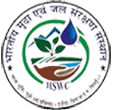Bellary
Background
The Research Centre of Indian Institute of Soil and Water Conservation at Ballari was established in October 1954 to conduct research on problems related to soil and water conservation on deep black soils of low rainfall region, to extend the results of research to farmers and to impart training in soil and water conservation to the officers/assistants sponsored by the State and Central Governments.
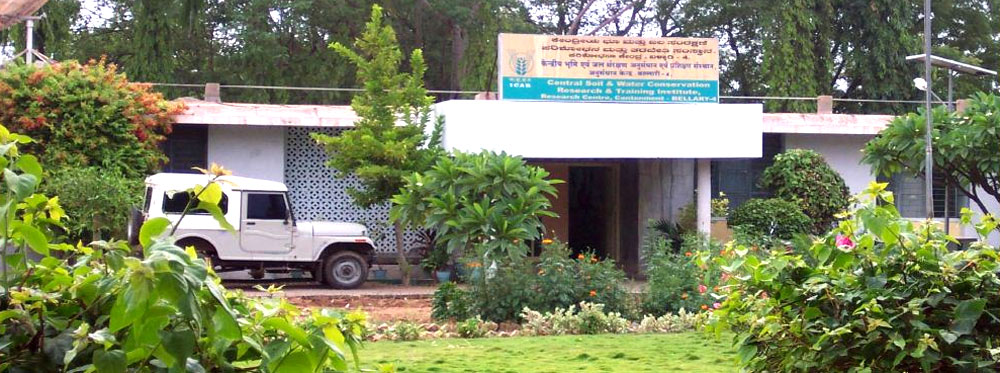
The rainfall in the area is very low and amounts to only 500 mm per annum. Since the inception of this Centre, soil conservation measures/practices such as contour cultivation, strip cropping, contour bunding, terracing with rainwater harvesting and recycling, gully plugging etc. have been evaluated/tested for their efficacy in conserving soil and rainwater and for enhancing agricultural production on a sustained basis. Of late, the Centre is also addressing the issues related to red soil (alfisols) region of Karnataka and Andhra Pradesh through the watershed programme.
The results of research from the Centre are applicable to the deep black soil/ vertisols and its’ associated soils areas with low rainfall covering Bellary, Chitradurga, Raichur, Koppal, Gadag and Bijapur districts of Karnataka State; Kurnool, Cuddapah, Mehboobnagar and Anantapur districts of Andhra Pradesh and Ahmednagar and Solapur districts of Maharashtra State.
Mandate
- To undertake research on soil erosion problems of the region by collecting and analysing data on climate, soil and plant in relation to runoff and erosion losses.
- To evolve suitable agronomic and mechanical measures for effective conservation of soil moisture and field experimentation and demonstrate the efficacy of soil and water conservation methods to the farmers.
- To investigate physical, chemical and micro-biological aspects of black soils with a view to increase the structural stability and moisture retentive capacity.
- To impart specialized training in soil and water conservation to officer/assistant trainees from different States
SCIENTISTS
Scientific

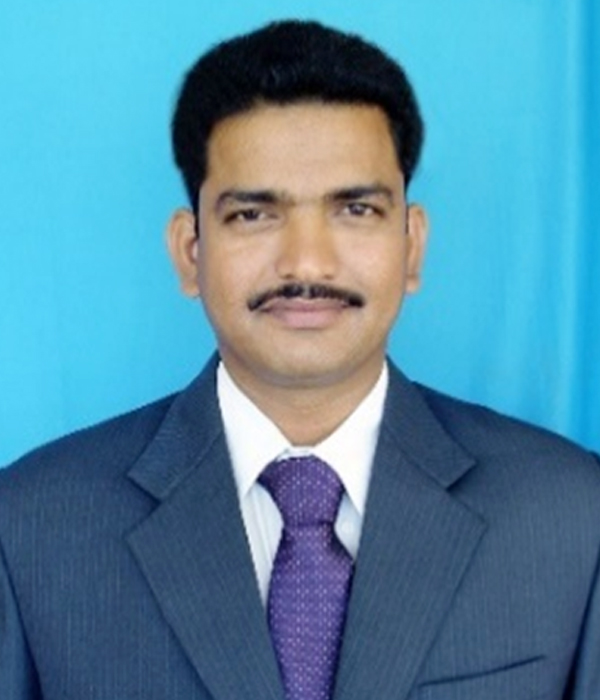
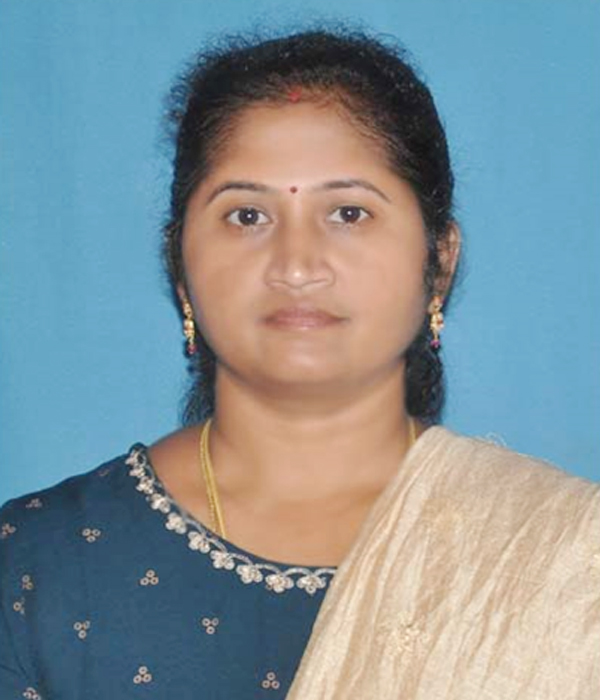
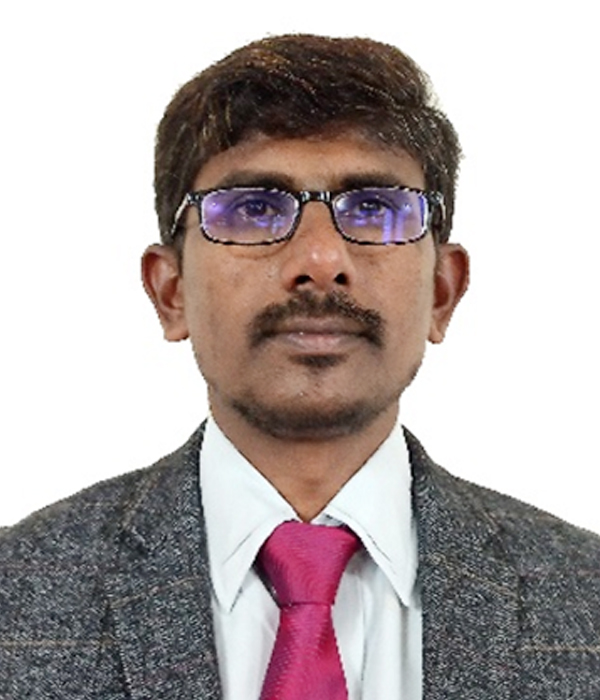
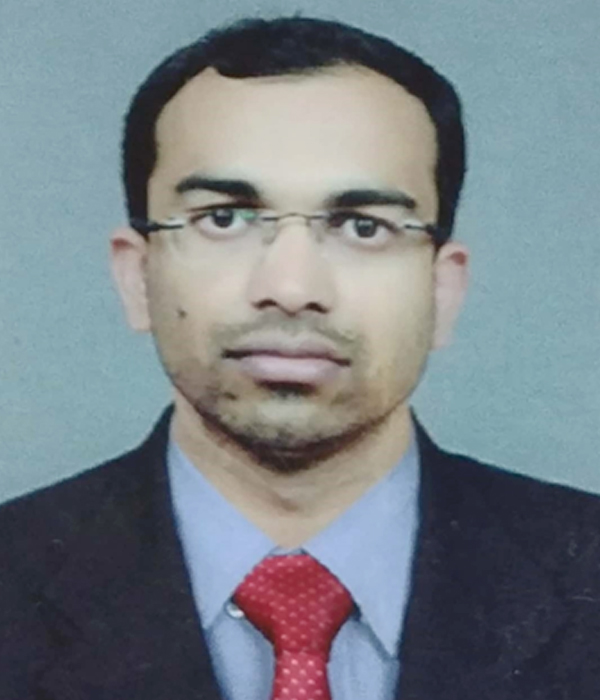
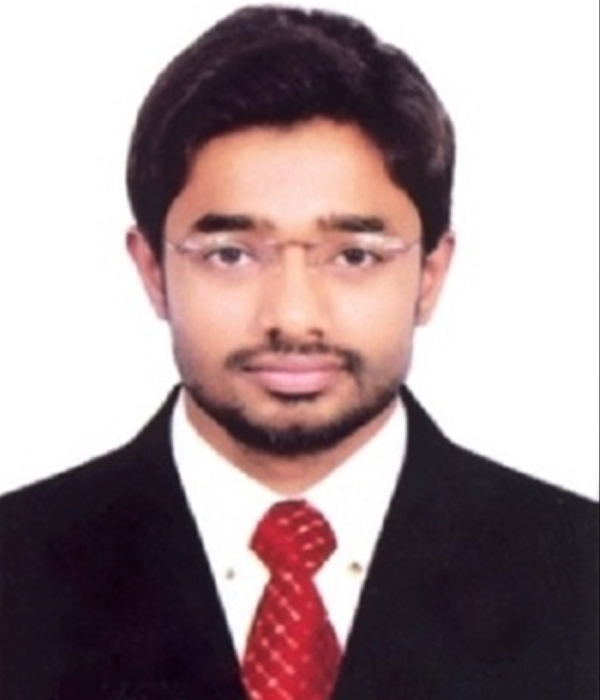


Infrastructure
For conducting research, demonstration and training this Centre has good facilities of laboratories and an experimental research farm. It organizes training and capacity building programmes for students as well as farmers as per specific demands from time to time. Over the last 50 years the Research Centre has built up excellent and modern facilities for conducting research, training and consultancy services in the field of soil and water conservation and watershed management.
Soil Laboratory
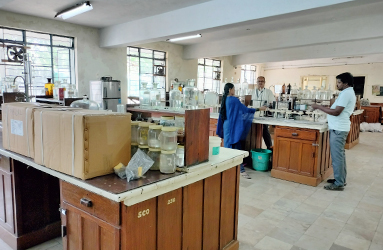
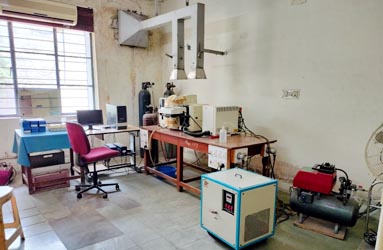
For the routine analysis of soil, water and plant samples the Centre has a laboratory equipped with several modern and scientific instruments. The equipments like pH meter, Electric Conductivity meter, Spectrophotometer, Flame photometer, Ion meter, Autoclave, Incubator, Laminar airflow, Yoder type wet sieving apparatus, Bacterial Incubator, Hot Air Oven, Atomic Absorption Spectrophotometer, Hot Water Bath, Grain size analyzer apparatus, Distilled Water Distillation Unit, etc. are available for supporting research and training in the area of soil and water conservation, land degradation and soil quality assessment. Soil and runoff samples from the field plots and watersheds are being analysed for estimation of soil and nutrient losses and other parameters.
Lab Equipment
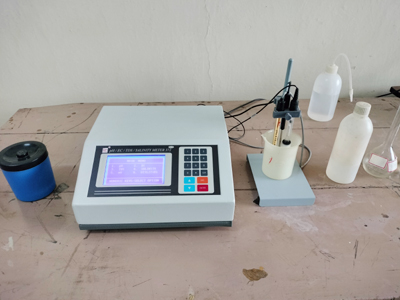
EC Meter
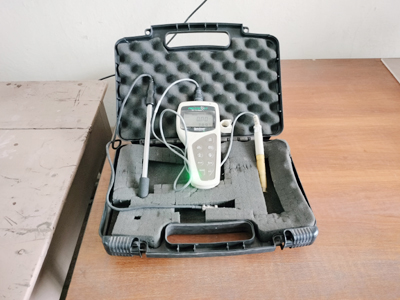
EC Probe
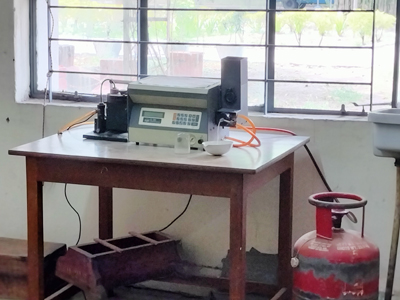
Flame Photo Meter
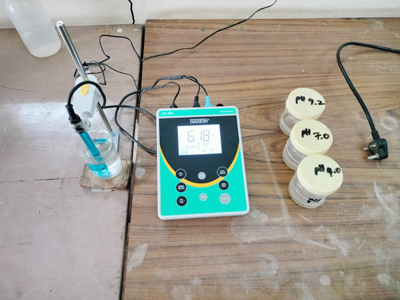
PH Meter
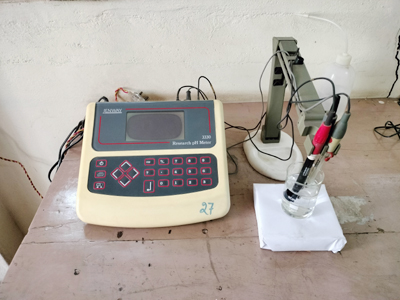
PH-ION Meter
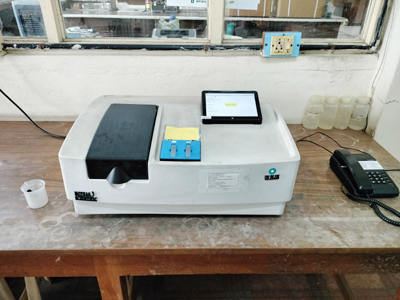
Spectro Photo Meter
Computer & Communication Cell
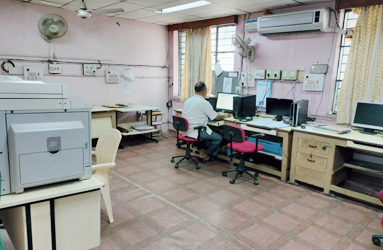 The Centre is equipped with 20 no. of desktop computers, one server and an workstation; all of which are connected by LAN and Internet for the purpose of research and data analysis.
The Centre is equipped with 20 no. of desktop computers, one server and an workstation; all of which are connected by LAN and Internet for the purpose of research and data analysis.
It is also equipped with Geographic Information System (ArcGIS 10.4 & Geomedia) and Global Positioning System (GPS). In addition, three laptop computers also exist to support demonstration and extension activities.
Library

The Centre has its own library to cater to the needs of Scientists, NGOs, Students, Government Departments and other professionals, engaged in soil and water conservation as well as watershed programme.
Cartography & Survey Laboratory
The Centre has full-fledged cartography cell with modern instruments to meet the requirements of the different research projects, consultancy services and training programmes.
Classroom
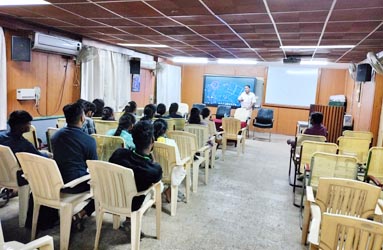
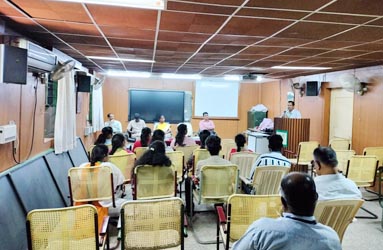
Research
Research Achievements
- Graded bunding in vertisols with a combination of 0.75 m vertical interval and 0.6m2 cross-sectional area of the bund gave maximum sorghum grain yield (29.9 q ha-1 ) as compared to control (20.4 q ha-1 ).
- Sunflower in rotation with sorghum or as intercrop reduced runoff from 51 mm to 30 mm. Sunflower was more remunerative than groundnut in semi-arid and black soil region
- Among various grass barriers, minimum runoff was produced by Dicanthium annulatum (26.3 mm) followed by Cymbopogon martinii (30.4 mm) and Vetivera zizanioides (48.6 mm) as compared to 173.9 mm in control. The minimum soil loss of 145.6 kg ha- 1yr-1 was also observed in Dicanthium annul atumtreatment
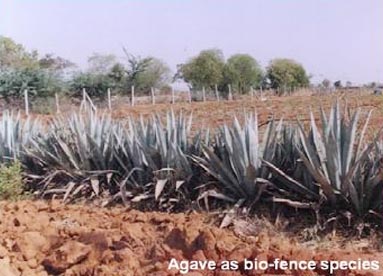 Planting of bio-fence species like Agave sisilena, Euphorbia tirucalli, Glyricidia maculata, Cassia siamea, Ipomea cornea, Jatropha curcas, etc. on the ridge in two staggered rows with a spacing of 50x50 cm on boundaries of cultivated fields check the human and animal encroachment and protect the crops, reduces runoff (5.20 mm) and soil loss (259.13 kg ha- 1), improves soil moisture and soil fertility, provides additional income and stabilizes the field bunds
Planting of bio-fence species like Agave sisilena, Euphorbia tirucalli, Glyricidia maculata, Cassia siamea, Ipomea cornea, Jatropha curcas, etc. on the ridge in two staggered rows with a spacing of 50x50 cm on boundaries of cultivated fields check the human and animal encroachment and protect the crops, reduces runoff (5.20 mm) and soil loss (259.13 kg ha- 1), improves soil moisture and soil fertility, provides additional income and stabilizes the field bunds- The soil conservation measures in a watershed at Chinnatekur in Kurnool district of A.P. increased ground water levels by 0.5 to 1 m. Consequently, the command area of 47 open wells in the watershed increased by 173% as compared to pretreatment period. The number of open wells increased from 47 during the pre-project period to 120
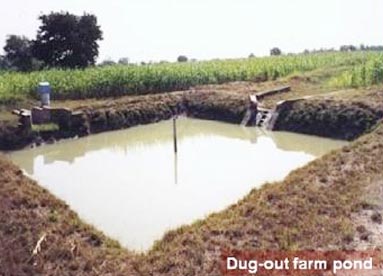 Adoption of integrated watershed management in an agricultural watershed at G.R.Halli reduced runoff from 20- 30% to 1-2% and soil loss from 5-10 to 1.0 t ha-1yr-1
Adoption of integrated watershed management in an agricultural watershed at G.R.Halli reduced runoff from 20- 30% to 1-2% and soil loss from 5-10 to 1.0 t ha-1yr-1- Water harvesting through dug-out farm pond proved beneficial in semi-arid black soil region to mitigate the problem of water scarcity during long dry spells in crop season. One dug-out pond in every 10 ha catchments area is required to stabilized crop production as recommended by this center
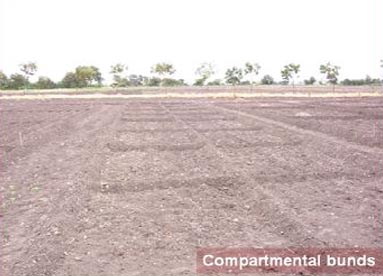 Layout of farmers fields with compartmental bunding in between the graded bunds increased the groundnut and sunflower yields by 45% with conservation of rainwater and top fertile soil. Due to resource conservation in the black soils of Joladarasi watershed the yields of coriander and safflower increased by 14 and 12%, respectively, in the mixed cropping and by 14 and 17% in the intercropping as compared to outside the watershed (average of 8 years)
Layout of farmers fields with compartmental bunding in between the graded bunds increased the groundnut and sunflower yields by 45% with conservation of rainwater and top fertile soil. Due to resource conservation in the black soils of Joladarasi watershed the yields of coriander and safflower increased by 14 and 12%, respectively, in the mixed cropping and by 14 and 17% in the intercropping as compared to outside the watershed (average of 8 years)- The impact of farm ponds was positive on cropping pattern, cropping intensity, crop diversification and crop yields which was increased up to 20-25% with critical life saving irrigation through farm ponds as compared to control under Krishi Bhagya Scheme in semi-arid vertisols of Karnataka.
- Drip irrigation with solar pumps has provided opportunity for the farmer to have a diversified cropping system and helps to increase crop yields and net returns up to 71% with low input cost in semi-arid vertisols
- Integrated Nutrient Management with application of biofertilizer considerably sustains the chickpea productivity in Vertisols of south India.
- Bore well recharge filters with good amount of rainfall there was visible rise in ground water level, and adequate availability of water for applying irrigation, and increased crop yields were observed in different crops (maize, sorghum, tomato, chilli, ragi and onion) which ranged from 22 to 60% compared to controls
- The significant reduction in soluble cat ions under evaluated Prosopis pallidas on saline-sodic Vertisols indicates that Ppallida is one of the potential candidate trees for re-habilitation of saline-sodic Vertisols
- Higher Soil Organic Carbon Stock (SOCS) recorded in Tamarind tree system (41.64 Mg ha-1) whereas lower organic carbon stock recorded in the ber system (29 Mg ha-1). With respect to soil inorganic carbon stock (SICS), the highest SICS recorded in the ber (44.78 Mg ha-1) whereas lowest SICS recorded in tamarind system (41.24 Mg ha-1).
- Higher plant height, collar diameter, stem length were found in 3*2*3 and 4*2*3 canopy tier. It is mainly attributed to better utilization of light for photosynthesis which led better growth and development in fig.
Institute Project
| S No. | Title | Duration | PI | Co PI |
|---|---|---|---|---|
| 1 | Evaluation of direct recharge filter for revival of defunct and low yielding bore well vis-a-vis augmentation of ground water table in semi-arid region of Karnataka | 2017-18 to 2022-23 | B. S. Naik | Ravi Dupdal |
| 2 | Erosion productivity relationships for evaluating vulnerability and resiliency of soils under different agro-climatic regions of India. (Core Project) | 2008-09 to 2024-25 | M. Prabhavathi | B.S. Naik |
| 3 | Regulated deficit irrigation and canopy architecture management for fig (Ficus carica L.) in semi-arid vertisols. | 2017-18 to 2022-23 | M. Prabhavathi | M.N. Ramesha |
| 4 | Valuation of ecosystem services from natural resource conservation and management interventions in different agro-ecological regions in India. | 2020-21 | Ravi Dupdal | B.S. Naik M.N Ramesha M. Prabhavathi |
| 5 | Carbon sequestration potential of prevailing and recommended land uses in reclaimed degraded ecosystems under different agro-ecological regions of India. | 2019-20 to 2023-24 | M. Prabhavathi | B.S. Naik M.N. Ramesha |
| 6 | Economic impact assessment of water harvesting structure-Farm Pond in the semi-arid regions of Karnataka. | 2018-19 to 2022-23 | Ravi Dupdal. | B.S. Naik M.N. Ramesha Ravi K.N |
| 7 | Impact assessment of database driven site-specific watersheds management: A multi stakeholder analysis. | 2021-22 to 2023-24 | Ravi K.N. 4 | M.N. Ramesha Ravi Dupdal B.S. Naik |
| 8 | Effect of Natural Farming Practices on Resource Conservation and Productivity in different Agro | 2022-23 to 2026-27 | M. Prabhavathi | B.S.Naik M.N.Ramesha Ravi Dupdal Ravi K.N. |
| 9 | Phyto-rehabilitation of saline-sodic Vertisols through Prosopis pallida based silvipastoral systems. | 2022-23 to 2024-25 | M.N. Ramesha | M. Prabhavathi |
Externally funded projects:
| S No. | Title | Funding agency | Duration | PI & Co PI |
|---|---|---|---|---|
| 1. | Network project “Production systems, agribusiness and institutions” Component1: “Impact of agricultural Technology: Impact of watershed management in different agro-ecological regions. (Collaborative Project & Externally Funded) | ICAR-NIAP, New Delhi | 2021-22 to 2024-25 | Ravi Dupdal |
| 2 | Effect of integrated nutrient management on soil properties and productivity of chickpea under rainfed vertisols of South India. | AICRPDA Collaboration with ICAR-CRIDA, Hyderabad | 2018-19 to 2022-23 | M.N. Ramesha Ravi K.N. M. Prabhavathi |
| 3 | Women empowerment through watershed development programmes in different agro-ecological regions of India | Inter-institutional Collaboration with ICAR-CIWA, BBSR | 2021-22 to 2023-24 | Mr. Ravi K. N |
Training
Accommodation Facilities
A trainee's hostel with 15 fully furnished double-bedded rooms (356.50 sq.m. area) and one guest house with attached bathrooms facilities are available for accommodating trainees and other visitors. In addition, one class room and one conference hall with good infrastructure facilities like Interactive Penal with internet facilities are available for conducting classes and specialized training programmes. A generator is available for maintaining electricity supply during load shedding hour
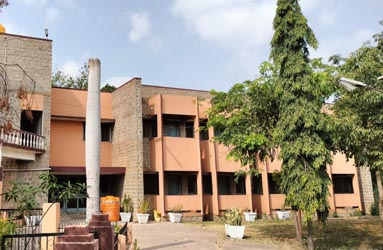
Training Hostel
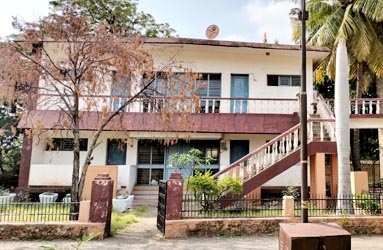
Guest House
Exhibition hall/Museum
The exhibition cum Museum hall is situated at Main office. The research findings, achievements, activities of this Centre are displayed in the form of photographs, data tables and graphs/maps on the panels. Apart from that the watershed models and miniature of borewell recharge filter was displayed at the Museum. Distinguished dignitaries, Scientists, farmers, students etc., are visiting the museum regularly.
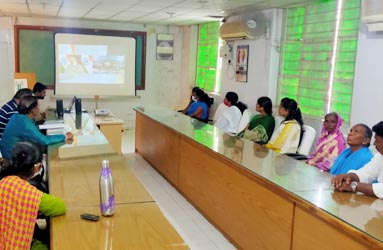
Conference Hall
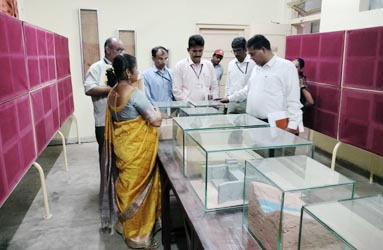
Museum
Research Farm
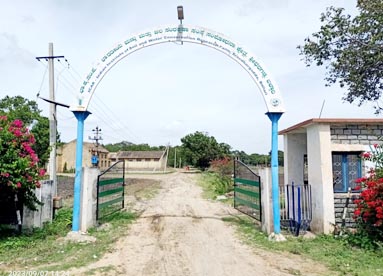 The Centre has a Research Farm of 86.70 ha situated at Sreedharagadda, Somasamudram P.O., Bellary district (13 km away from the Centre) with well-equipped infrastructure facilities for conducting the field experiments, demonstration of technology and micro-watershed studies. Various facilities of the farm include workshop, tractor, power tiller and farm equipments. Indigenously made state of the art experimental facilities like tilting hydraulic flume and rainfall simulator are available at the farm for basic hydrological studies under variable slope condition. To measure evapotranspiration Lysimeter are installed at the Research farm.
The Centre has a Research Farm of 86.70 ha situated at Sreedharagadda, Somasamudram P.O., Bellary district (13 km away from the Centre) with well-equipped infrastructure facilities for conducting the field experiments, demonstration of technology and micro-watershed studies. Various facilities of the farm include workshop, tractor, power tiller and farm equipments. Indigenously made state of the art experimental facilities like tilting hydraulic flume and rainfall simulator are available at the farm for basic hydrological studies under variable slope condition. To measure evapotranspiration Lysimeter are installed at the Research farm.
The Centre is also equipped with various hydrological devices like Automatic stage level recorders, H-Flumes, Coshocton silt samplers, Multi-slot devisors, Ramser’s sampler and a number of self recording gauging stations (runoff plot, field plots, microwatershed and small watersheds) for measuring resource losses (runoff, soil loss and nutrient losses) in different situations in the region on watershed basis.
Hydro-meteorological stations
The Centre has full-fledged cartography cell with modern instruments to meet the requirements of the different research projects, consultancy services and training programmes.
Consultancy
This Centre has offered several consultancies to different agencies/projects and these includes:
- Integrated participatory watershed development planning and management
- Monitoring and impact evaluation of watershed programme
- Soil and water conservation programme
- Planning of land development-cum-water resource development
- Integrated wasteland and drought prone area development
- Hydrological monitoring, water harvesting and drainage line treatment
- Environmental rehabilitation of degraded lands
- Watershed hydrology and water resources development
- Impact assessment of natural resource conservation programme
- Soil and Water Conservation Treatment Plan for Mincheri Reserve Forest (KFD Project)
- Soil and Water Conservation Treatment Plan for Tumberaguddi Reserve Forest (KFD Project)
- Soil and Water Conservation Treatment Plan for Ramanamalai Reserve Forest (KFD Project)
- Watershed Development Plan for Micro Watersheds within 10 KM radius from Chitravathi Pumped Storage Hydro-electric Project at Andhra Pradesh (Sponsored by AARVEE)
- Watershed Development Plan for Micro Watersheds within 10 KM radius from Gandhikota Pumped Storage Hydro-electric Project at Andhra Pradesh (Sponsored by WAPCOS).
Collaboration
The Centre during the period is associated with different National, International Organizations, State Agricultural Universities and Developmental Agencies in conducting various research programmes and in transferring the technologies developed into the farm situation.
| Name of organization | Purpose |
|---|---|
| ICAR-NBSS&LUP, Bangalore | To prepare soil erosion maps of Karnataka and Andhra Pradesh |
| ICAR-CRIDA, Hyderabad | Collaborative research in the field of soil and water conservation and crop production relating to dryland agriculture |
| ICAR-NRC on Sorghum, Sholapur | Collaborative research in evaluating sorghum genotypes suitable for rabi seasons in the region |
| MYRADA (NGO) | Training of manpower for undertaking conservation programmes |
| RDT (NGO) | Training and Transfer of Technology on watershed basis |
| ICRISAT, Hyderabad | Knowledge interaction on resource conservation |
| DPAP, Karnool and DRDA, Anantapur | Training and Transfer of Technology on watershed basis |
| UAS, Dharwad, UAS, Raichur, UAHS, Shimoga and UAS, Bangalore | Watershed management |
| Department of Agriculture, Forestry & Watershed of Government of Karnataka & Government of Andhra Pradesh | Resource conservation and crop productivity in rainfed areas; Consultancy and evaluation studies and human resource development |
| Department of mines, Government of India | Reclamation of mined degraded area |
| Indian Meteorological Department, Pune | To generate Agromet database |
| Ministry of Agriculture, Government of India | Consultancy and evaluation studies |
| Joint Director of Agriculture, Deputy Director of Horticulture and Joint Director of Fisheries, Ballari | Collaboration on Agriculture Research, Training and Extension activities |
| ICAR-KVK, Hagari, Gangavathi, and Yadgir and ARS Station, Ballari and Siraguppa | Collaboration on Agriculture Research, Training and Extension activities |
| Karnataka State Seed Corporation, Ballari | Collaboration for production of foundation seeds of different crops |
| SAUs of different states across India | Training of B. Tech (Agril. Engg.) students on Soil and Water Conservation and Watershed Management. |



